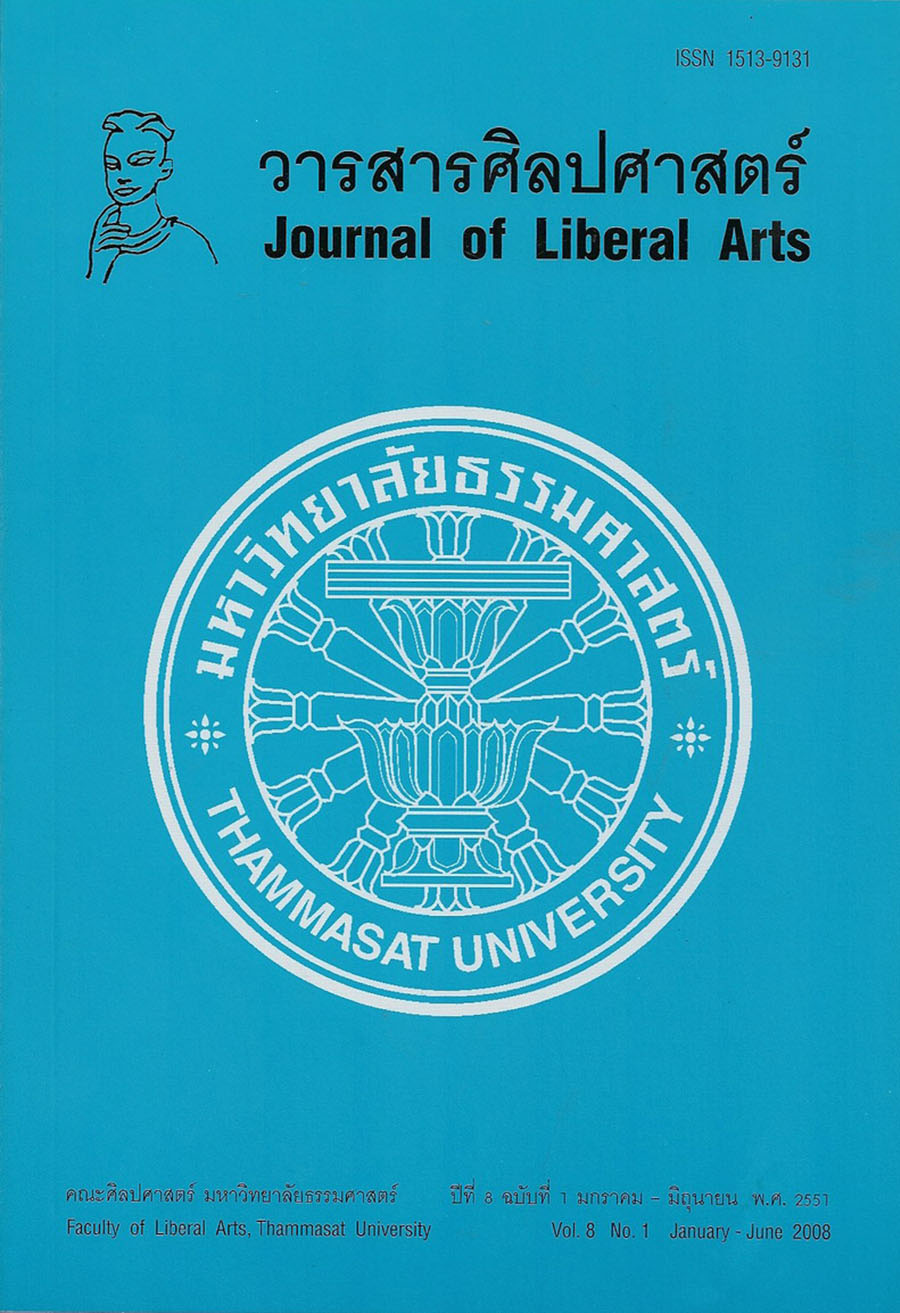ปัญหาในการเรียนรู้อกรรมกริยาและสกรรมกริยาของผู้เรียนภาษาญี่ปุ่นชาวไทย
Main Article Content
บทคัดย่อ
งานวิจัยนี้ศึกษาปัญหาในการเรียนรู้อกรรมกริยาและสกรรมกริยาของผู้เรียนภาษาญี่ปุ่นชาวไทย โดยสามารถสรุปปัญหาในการใช้อกรรมกริยา และสกรรมกริยาของผู้เรียนภาษาญี่ปุ่นชาวไทยได้ดังต่อไปนี้
ก. ผู้เรียนใช้รูปของคำกริยาไม่ถูกต้อง (ควรใช้อกรรมกริยาแต่กลับใช้สกรรมกริยา หรือกลับกัน)
ข. ผู้เรียนใช้คำช่วยผิด
ค. ผู้เรียนใช้คำกริยาผิดเนื่องจากข้อจำกัดในเชิงไวยากรณ์ (โครงสร้างประโยค)
ง. ผู้เรียนใช้คำกริยาผิดเนื่องจากเข้าใจผิดว่าสกรรมกริยาแสดงความตั้งใจในการทำกริยาเสมอ
จ. ผู้เรียนใช้คำกริยาผิด กรณีคู่อกรรมกริยาและสกรรมกริยาที่มีความหมายพิเศษ หรือเข้าใจยากสำหรับผู้เรียนชาวไทย
ฉ. ผู้เรียนใช้คำกริยาผิด กรณีสำนวน [する] และ [なる]
ช. ผู้เรียนมีแนวโน้มเลือกใช้อกรรมกริยาหรือสกรรมกริยาตัวที่ตนเองคุ้นเคย (พบมากในผู้เรียนที่เพิ่งเรียนจบชั้นต้น)
This study examine the problems concerning the acquisition of Japanese transitive and intransitive verbs by Thai students. The finding are as following:
a) Learners using the wrong verbs. (confusing of the forms of transitive and intransitive verbs.)
b) Learners using the wrong particles.
c) Learners using the wrong verbs due to the Japanese grammatical rules.
d) Learners using the wrong verbs as they misunderstood that the transitive verbs always volitional actions.
e) Learners using the wrong verbs in case of the verbs that have special meaning or are hard for Thai learners to understand.
f) Learners using the wrong verbs in case of the verbs ‘suru’ and ‘naru’.
g) Learners (especially those who just finished a beginner’s course) tend to use particular transitive of intransitive verbs with which they are familiar.


